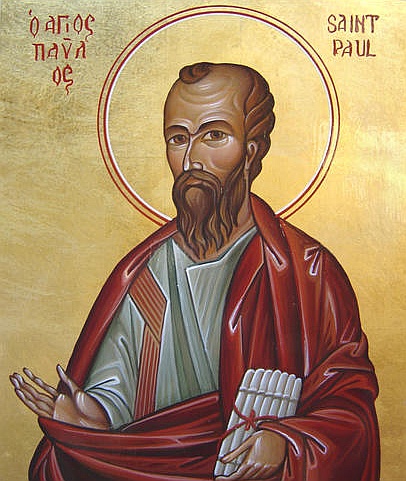Discover the life and impact of St. Paul, the Apostle to the Gentiles. Explore his journeys, teachings, and influence on Christianity.
Have you ever wondered about the life and impact of St. Paul, the Apostle to the Gentiles and Patron of Missionaries? Join us on a journey to learn more about this influential figure in Christianity and how his teachings continue to inspire and influence people around the world.

St. Paul’s Background and Early Life
St. Paul, also known as Saul of Tarsus, was born in approximately AD 5 in Tarsus, a city in modern-day Turkey. He was raised in a devout Jewish family and was well-versed in the traditions and teachings of Judaism. Despite his upbringing, Paul initially persecuted early Christians before his conversion on the road to Damascus.
A Transformation on the Road to Damascus
Imagine being on a journey and suddenly experiencing a life-changing event that completely alters your perspective and purpose. This is what happened to St. Paul on the road to Damascus. He encountered a blinding light and heard the voice of Jesus, who questioned his actions and called him to be a disciple. This encounter led to Paul’s conversion to Christianity and the beginning of his mission to spread the teachings of Jesus to the Gentiles.
St. Paul’s Missionary Journeys and Letters
Following his conversion, St. Paul embarked on several missionary journeys to spread the message of Christianity to different regions. He traveled extensively throughout the Mediterranean, establishing new Christian communities and churches along the way. Paul’s letters, also known as epistles, contain valuable teachings and insights into the early Christian faith.
First Missionary Journey: Cyprus and Galatia
On his first missionary journey, St. Paul, accompanied by Barnabas, traveled to Cyprus and Galatia, preaching the Gospel and establishing new Christian communities. Despite facing opposition and challenges, Paul remained steadfast in his mission to share the message of Jesus with others.
Second Missionary Journey: Macedonia and Achaia
During his second missionary journey, St. Paul ventured to Macedonia and Achaia, where he encountered both supporters and adversaries of the Christian faith. Through his teachings and writings, Paul emphasized the importance of unity and love among believers, regardless of their backgrounds or circumstances.
Third Missionary Journey: Asia Minor and Ephesus
In his third missionary journey, St. Paul journeyed to Asia Minor and Ephesus, where he encountered spiritual warfare and opposition from those who opposed his message. Despite facing challenges, Paul remained committed to spreading the Gospel and nurturing the faith of new believers in these regions.

St. Paul’s Writings and Teachings
St. Paul’s letters, or epistles, are an integral part of the New Testament and offer valuable insights into the early Christian faith. His writings cover a wide range of theological topics and provide guidance for believers on how to live out their faith in daily life.
Theological Themes in St. Paul’s Letters
Throughout his letters, St. Paul addresses various theological themes, including salvation, grace, faith, and the role of the church. His teachings emphasize the importance of living out one’s faith through love, compassion, and service to others.
Practical Advice for Believers
In addition to theological teachings, St. Paul provides practical advice for believers on how to navigate challenges and conflicts within the church and society. His letters offer guidance on topics such as marriage, leadership, unity, and charity, encouraging believers to live out their faith in a way that honors God and reflects the teachings of Jesus.
St. Paul’s Influence on Christianity
St. Paul’s teachings and missionary journeys had a profound impact on the development and spread of Christianity in the ancient world. His commitment to sharing the Gospel with diverse groups of people helped to establish Christianity as a global faith that transcends cultural and geographical boundaries.
Establishment of Christian Communities
One of St. Paul’s key contributions to Christianity was the establishment of new Christian communities in various regions throughout the Mediterranean. His missionary journeys laid the foundation for the growth and expansion of the early church, bringing together believers from different backgrounds and cultures.
Theological Legacy and Interpretation
St. Paul’s writings continue to be studied and interpreted by scholars and theologians around the world, offering insights into the theological foundations of the Christian faith. His teachings on topics such as salvation, grace, and faith have shaped Christian doctrine and understanding for centuries.
Patron of Missionaries
St. Paul is revered as the Patron of Missionaries due to his dedication to spreading the Gospel to diverse groups of people. His missionary journeys set a precedent for future generations of missionaries and evangelists, inspiring them to share the message of Jesus with others and establish Christian communities in new and challenging contexts.

St. Paul’s Martyrdom and Legacy
St. Paul’s unwavering commitment to his faith and mission ultimately led to his martyrdom in Rome, where he was executed for his beliefs. Despite facing persecution and adversity, Paul remained steadfast in his mission to share the message of Jesus and establish new Christian communities.
Legacy of Faith
St. Paul’s legacy of faith and dedication to his mission continues to inspire believers around the world to live out their faith with courage and conviction. His writings and teachings serve as a timeless reminder of the power of God’s grace and love to transform lives and communities.
Feast Day and Celebrations
Each year, on June 29th, believers around the world celebrate the Feast of St. Peter and St. Paul in honor of these two prominent figures in Christianity. The feast day serves as a reminder of the sacrifices and contributions of St. Paul to the early church and the enduring legacy of his faith and teachings.
Conclusion: Embracing St. Paul’s Legacy
As we reflect on the life and impact of St. Paul, the Apostle to the Gentiles and Patron of Missionaries, let us be inspired by his dedication to sharing the message of Jesus with others. May we follow in his footsteps by living out our faith with courage, compassion, and love, and by being ambassadors of God’s grace and mercy in a world in need of hope and healing.

